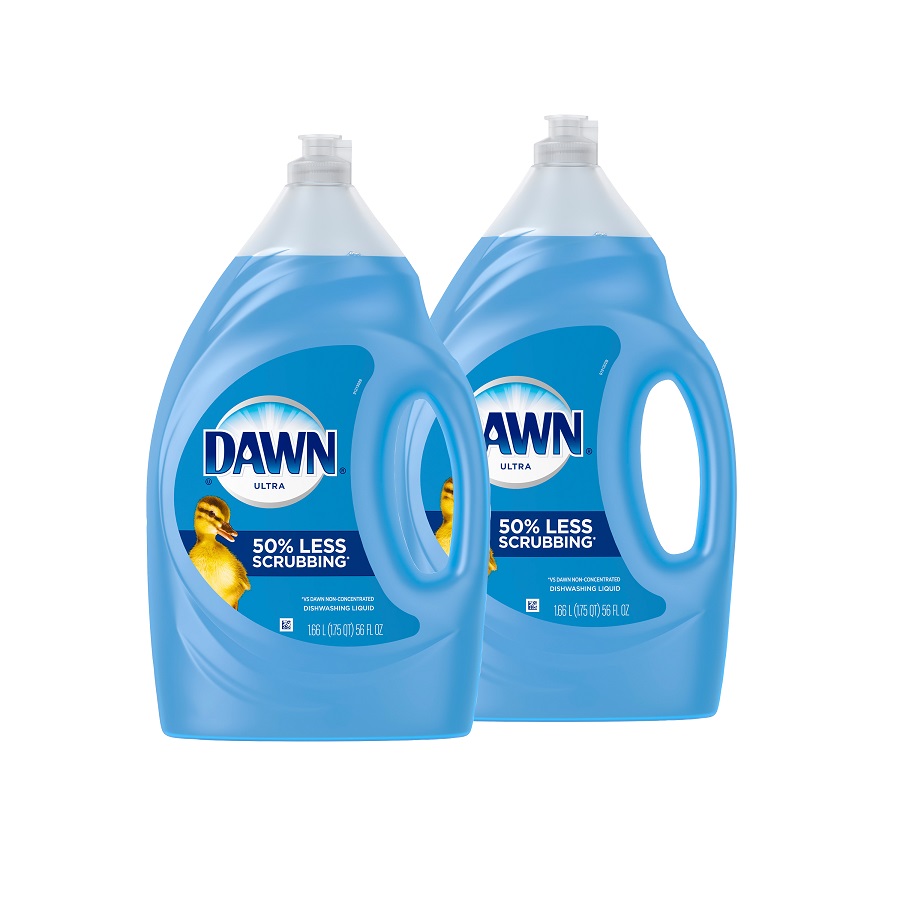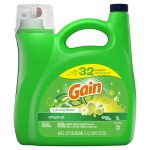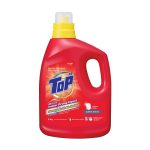The Risks of Using Dawn as Laundry Detergent
Turning to Dawn dish soap as a laundry detergent might seem like a good idea. But, it comes with risks. This section will look at how dish soaps like Dawn stack up against laundry detergents. We will also discuss how they affect your washing machine and clothing over time.
Dish Soap vs. Laundry Detergent: Composition and Efficacy
Dawn and other dish soaps are not made for washing clothes. Their formulas differ greatly from laundry detergents. Laundry detergents have specific ingredients designed to remove dirt from fabrics. Dish soaps lack these and may leave a filmy residue. They can lead to dingy and worn-out clothing after repeated use.
Why Using Dawn Can Damage Your Washing Machine
Using Dawn can cause a huge, foamy mess in your washing machine. It can lead to overflow and harm the machine’s pumps and drains. Dish soaps create many more suds than laundry detergents. Your washing machine is not built to handle this much foam. Saving a bit on soap can cost you a lot in damage to your machine.
Potential Long-Term Effects on Clothing Fibers
Frequent use of Dawn on your clothes can break down the fibers. This is because Dawn may not fully rinse out and can cling to the fabric. Over time, your clothing can become prematurely worn. It loses its brightness and can start to look old. Always think twice before substituting dish soap for laundry detergent.
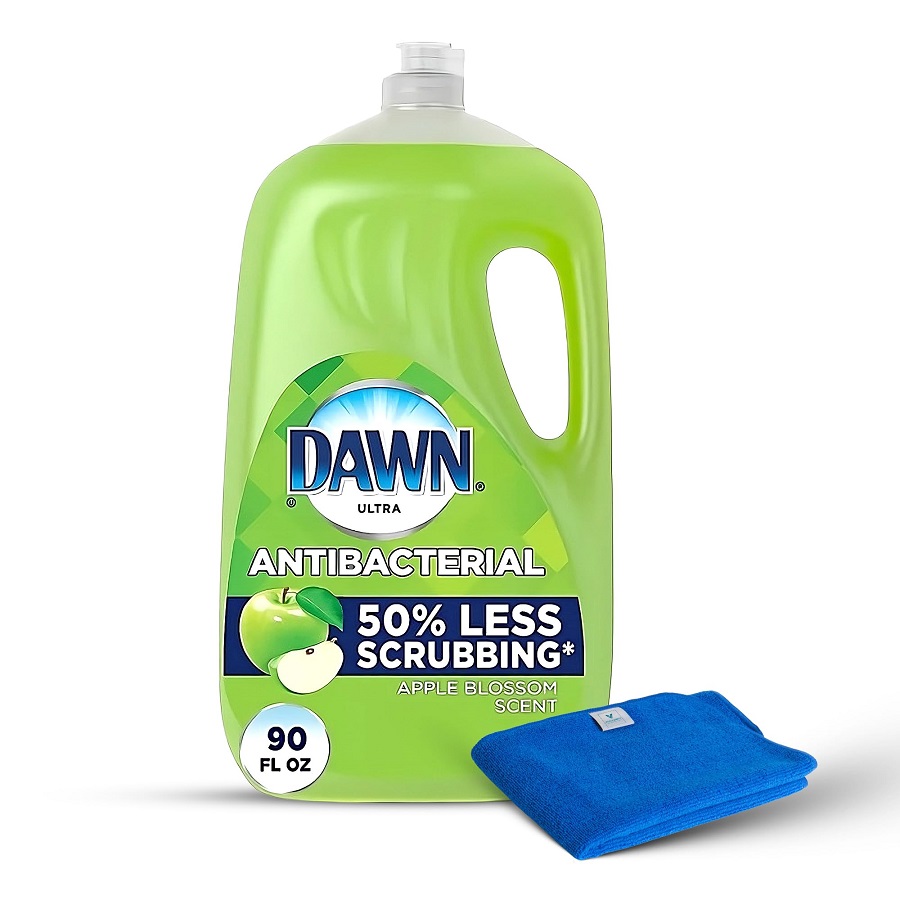
Misconceptions about Dish Soap as a Laundry Hack
It’s tempting to view dish soap as a clever laundry trick. Yet, the truth often contradicts this belief.
Busting Myths Around Cleaning Power and Suds
One common myth is that dish soap like Dawn can match laundry detergents in cleaning power. In reality, dish soaps are not as effective as laundry detergents for several reasons. They don’t contain the right ingredients to thoroughly clean fabrics. Plus, they generate many suds. This may look powerful, but it’s not ideal for laundry. A high amount of suds from dish soap can spell trouble for your washing machine.
The Realities of Soap Scum and Clothing Care
Many people also believe that dish soap will leave clothes sparkling clean. This is misleading. Dish soaps, when used on clothes, can leave behind soap scum. This residue makes clothes look dingy over time. It can also harm fabric fibers. This means your clothes won’t last as long if you make a habit of using dish soap. Always choose products meant for laundry to keep your clothes in good shape.
Safer Alternatives to Using Dawn in the Washing Machine
While Dawn dish soap is versatile, using it as laundry detergent is not advisable due to the risks discussed earlier. There are safer and more effective alternatives you can use that are specifically designed for laundry machines and can tackle a broad range of fabrics and stains.
Effective Laundry Detergent Options
Choosing the right laundry detergent is crucial for both fabric care and machine maintenance. High-efficiency (HE) detergents are made for modern washing machines and create less suds, preventing overflow and machine damage. They also come in various formulations to meet different laundry needs – from heavily soiled work clothes to delicate garments. Liquid detergents are great for greasy or oily stains, while powders typically work well for outdoor or ground-in dirt. Pods and packs offer convenience as they are pre-measured, but always store them safely away from children.
For those with sensitive skin, hypoallergenic and fragrance-free detergents are good choices as they contain fewer irritants. It is always best to choose a detergent that bears the HE symbol if you own a high-efficiency machine. Regular detergents can lead to too many suds and potential washer damage.
Natural Alternatives for Sensitive Fabrics
Natural laundry solutions can be kinder to sensitive fabrics and skin. Ingredients such as baking soda or washing soda can help clean clothes and even boost your regular detergent’s performance. White vinegar works as a fabric softener and can help remove odors. Enzymatic cleaners are effective on organic stains like grass or blood. There are also plant-based detergents available that use natural surfactants to clean without harsh chemicals.
Washing clothes should not compromise the integrity of the fabrics or the function of your washing machine. By choosing the right laundry products and using them correctly, you can keep your laundry clean, fresh, and your machine running smoothly.
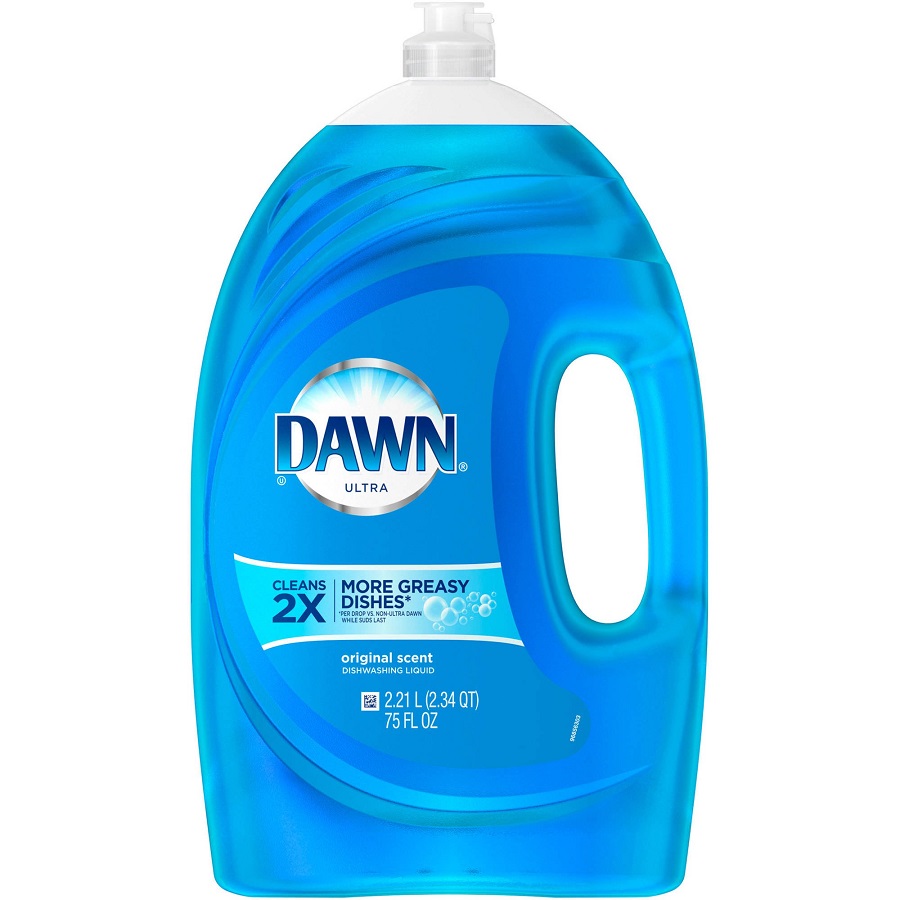
How to Handle Laundry Emergencies Without Dawn
It’s happened to everyone: you’re ready to do laundry only to realize you’re out of detergent. While you may consider reaching for Dawn, it’s not the best solution due to the risks outlined earlier. Instead, let’s explore some safe, short-term fixes to get you through your laundry emergency without risking damage to your clothing or washing machine.
Short-Term Solutions When You Run Out of Detergent
If you find yourself detergent-less, here are some options to consider:
- Use Baking Soda: A temporary substitute for detergent, baking soda can help freshen and clean your clothes in a pinch.
- Borrow a Cup: If possible, ask a neighbor or a friend. It’s a quick fix and gives you time to buy more detergent.
- Hand Wash with Mild Soap: If you have a gentle, non-detergent soap like castile soap, hand washing can tide you over.
- Re-wear Lightly Worn Garments: In a true pinch, you can re-wear some items that aren’t significantly soiled.
Remember, these tips are for emergency use only and should not replace regular laundry detergent for long-term clothing care.
Tips for Preventing Future Laundry Mishaps
Consider these strategies to ensure you’re never caught without laundry detergent again:
- Stock Up: Always have an extra bottle of detergent stored away to avoid running out unexpectedly.
- Laundry Schedule: Establish a laundry routine to monitor your detergent levels regularly.
- Detergent Alternatives: Keep a box of baking soda or borax on hand as an emergency backup – they’re also laundry boosters.
- Bulk Purchase: Buying in bulk can save you money and reduce the risk of running out.
With these tips in hand, you’ll be equipped to handle laundry emergencies without resorting to dish soap and risking the integrity of your washing machine and clothes.
Expert Advice on Removing Stains from Clothes
Navigating the landscape of stain removal can be challenging. With the right guidance, you can tackle even the toughest spots on your garments.
The Proper Use of Enzymatic and Oxygen-based Stain Removers
Enzymatic and oxygen-based stain removers are powerful agents against stubborn stains. The enzymes target protein-based messes like blood and food, breaking them down for easy removal. Oxygen-based cleaners work by releasing oxygen bubbles. These bubbles help lift stains from fabric fibers. For best results, apply the cleaner to the stain before washing, and let it sit for a few minutes. Avoid using hot water as it can set some types of stains. Always follow the product instructions for safety and effectiveness.
Gentle Tactics for Treating Delicate Garments
Delicate fabrics require special attention. Treat stains on these items with a gentle touch. Use mild detergents and spot treat with care. Avoid harsh brushing or scrubbing that can damage the fabric. Cold water is best for most delicate items, as it is less likely to cause shrinkage or color bleeding. If in doubt, dry cleaners are skilled in treating fragile garments. Trust them with items that are too sensitive for home treatment.
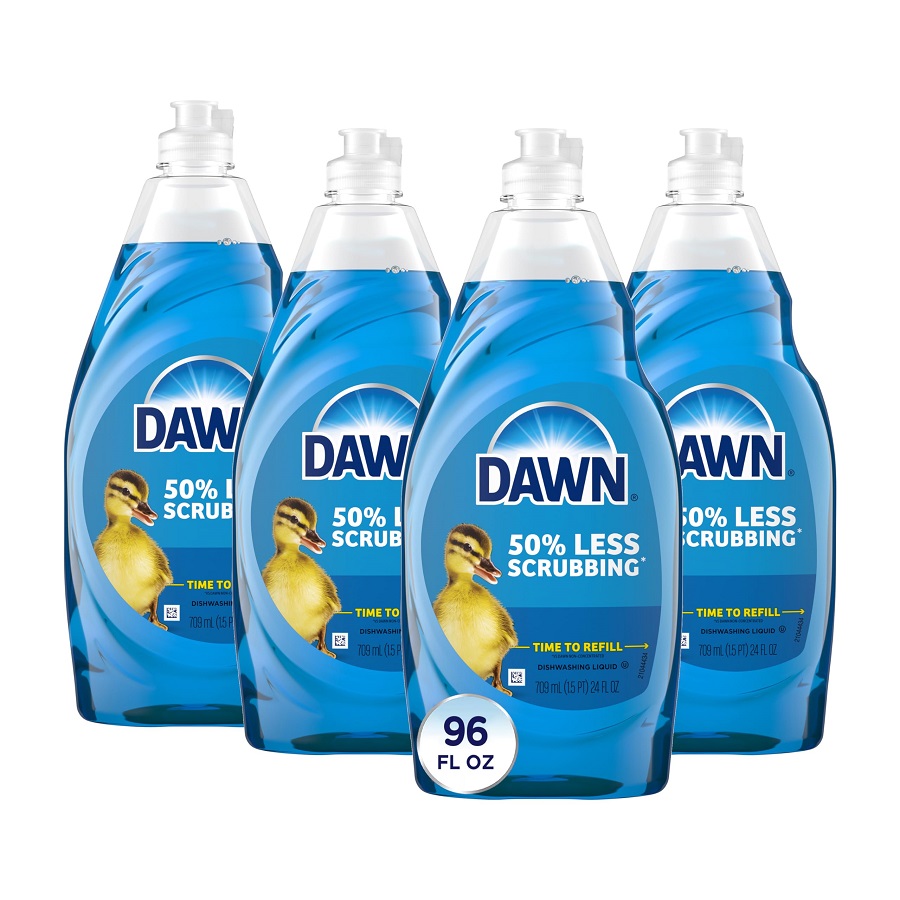
Maintenance and Care for Your Washing Machine
Proper maintenance prolongs the life of your appliances. In this section, we’ll discuss how to keep your washing machine running efficiently.
Best Practices for Regular Appliance Upkeep
To care for your washing machine, follow these simple steps:
- Check Hoses Regularly: Inspect for wear and replace any that show signs of damage.
- Use Correct Detergent Amounts: Too much can build up and cause problems. Follow guidelines for your model.
- Clean the Washer Regularly: This includes wiping down the drum, seals, and dispensers.
- Run Empty Hot Wash Cycles: Doing this monthly with a washing machine cleaner can clear out residue.
- Keep the Machine Level: An uneven washer can vibrate intensely and damage components.
Remembering the consequences of using dish soaps like Dawn improperly, these steps ensure you won’t encounter those issues.
When to Consult with Laundry Equipment Professionals
Seek professional help for your washing machine in these scenarios:
- When Performance Drops: If your washer isn’t cleaning well, a professional can diagnose the issue.
- Strange Noises or Movements: These may indicate a serious problem that requires expert attention.
- Leaks and Water Issues: To avoid water damage, have a pro look at persistent leaks.
Professionals like those from T & L Laundry Equipment can aid in selection, maintenance, and overall care of your washing machines. It’s crucial to reach out when you suspect that DIY solutions won’t cut it. Regular maintenance and timely professional checks can keep your washer functioning smoothly for years to come.
